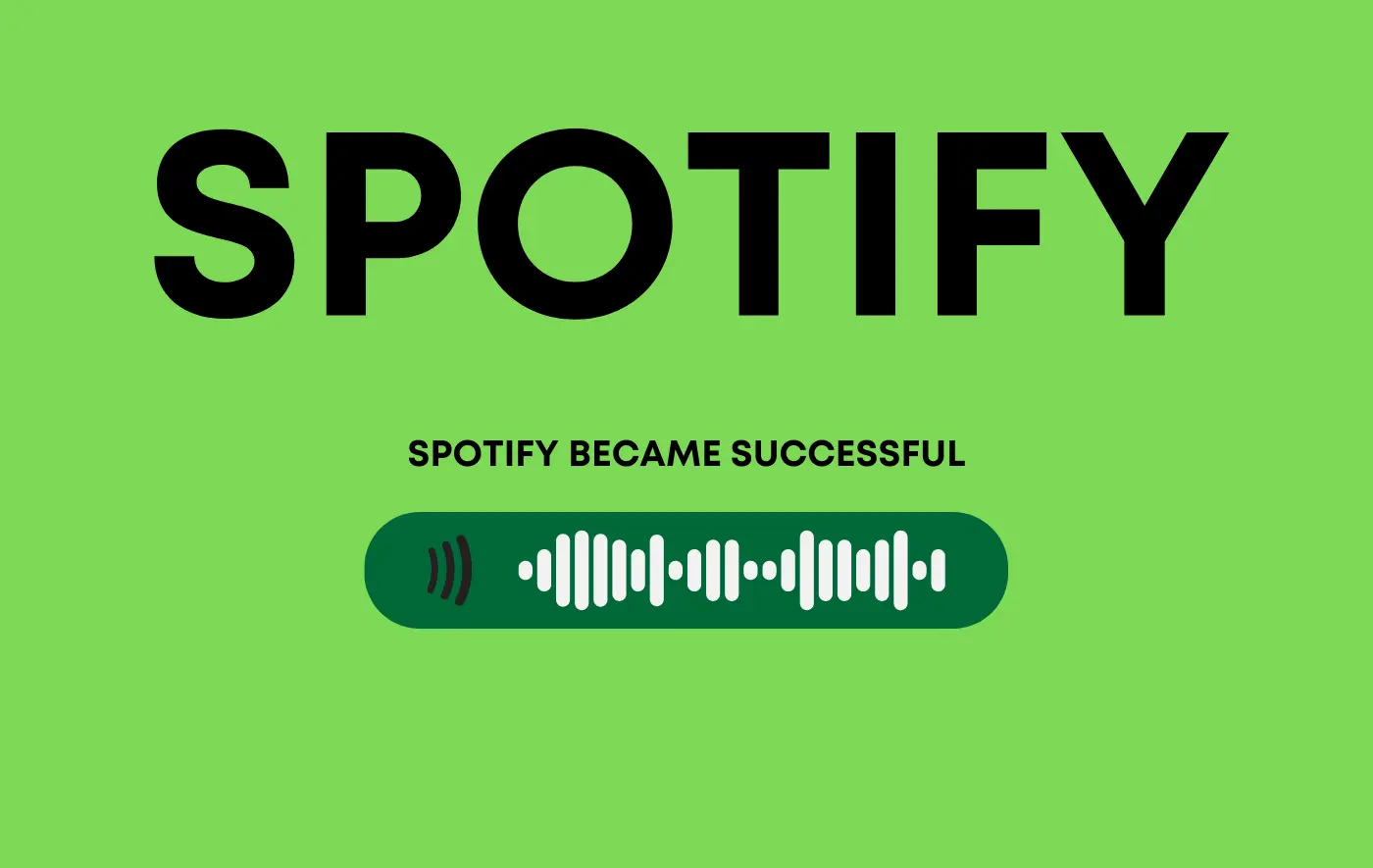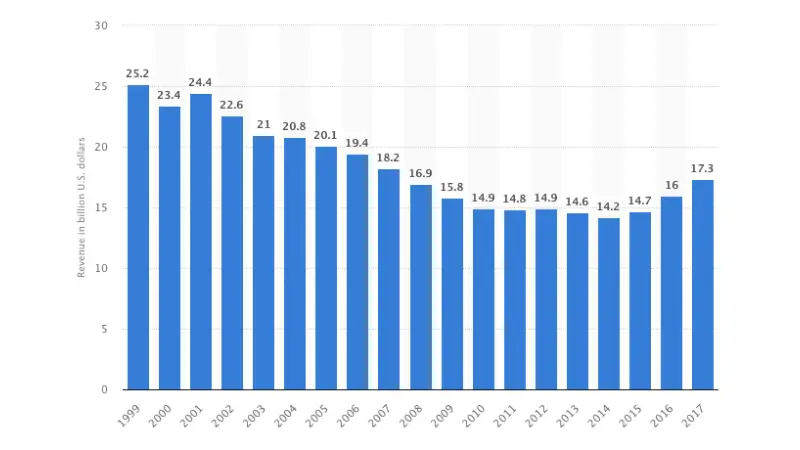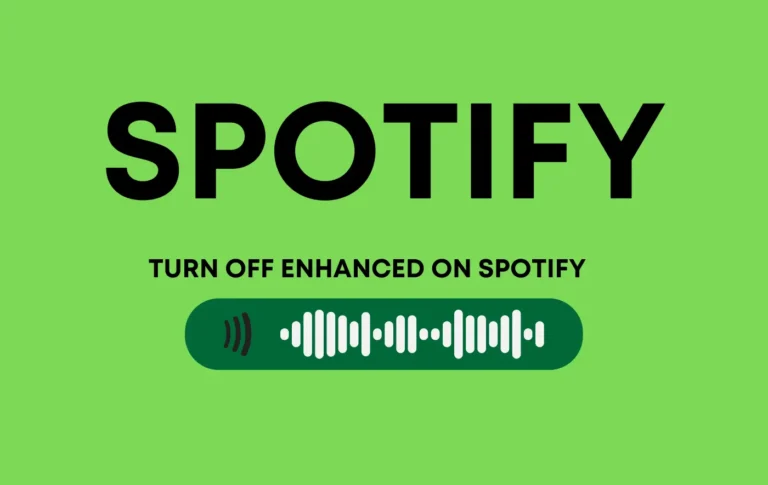Behind the Music: How Spotify Became Successful

Here I reveal the success story How Spotify became successful. Spotify is a musical platform where artists produce music and lovers enjoy music. It’s based on multiple factors, including streaming music, online podcasts, and so on, which give it popularity in the community.
Spotify is the most popular streaming service in the world, with many active users daily; almost 456 million monthly listeners listen to music on Spotify.
It has a lot of feathers and offers a vast library of music. Almost 82 million songs are included, which allows and encourages music artists to produce and share podcasts and playlists to listen to lovers and discover more new music.
Related: Check Your Spotify Listening Time Easily
Spotify’s success depends on several factors, including its:
- User-Friendly Interface:
Spotify’s success is attributed to its easy-to-use and guided platform, making it demanding for a broad audience.
- Access and Freedom:
Spotify gives users the freedom to access a vast library of music. And this thing makes offers in a different form from other musical platforms.
- Identifying Opportunity:
Spotify’s success lies in identifying a significant opportunity among music consumers and working diligently to capitalize on it.
- User Account Customization:
Since its inception, the extensive user account customization feature has contributed to Spotify’s early success.
- Free Version Strategy:
Spotify’s original strategy included creating a free version of its mobile app, a key factor in its widespread popularity.
- Localization Strategy:
Spotify’s successful international expansion is attributed to its effective localization strategy.
- Disruptive Impact:
Challenging traditional music industry models contributed to Spotify’s success, turning it into a disruptive force.
- Series A Funding:
Spotify’s launch in 2008 with substantial Series A funding played a crucial role in its growth and success.
- Free Version Strategy:
Offering a free version with similar features helped Spotify become the most popular music streaming platform in the world.
How Spotify became successful

The rise of streaming platforms
Streaming platforms have revolutionized the way we listen to music. Gone are the days of CDs and MP3 downloads, as consumers increasingly turn to streaming services for their music fix.
Spotify, founded in 2006, was one of the pioneers in this space, paving the way for a new era of music consumption.
With the rise of smartphones and high-speed internet, streaming platforms have become the go-to choice for music lovers around the world.
Spotify’s early days and challenges
Every success story has its humble beginnings, and Spotify is no exception. Founded by Daniel Ek and Martin Lorentzon, Spotify faced numerous challenges in its early days.
From securing licensing agreements with record labels to competing with established players in the industry, Spotify had to navigate a complex landscape to gain a foothold in the market.
However, through perseverance and innovative thinking, Spotify managed to overcome these hurdles and emerge as a dominant player in the music streaming space.
The key features that set Spotify apart
What sets Spotify apart from its competitors? One of the key features that has made Spotify a favorite among music enthusiasts is its personalized playlists.
With its powerful algorithms, Spotify curates playlists tailored to individual tastes, making music discovery a breeze.
Whether you’re in the mood for a relaxing acoustic session or an energetic workout playlist, Spotify has you covered.
Moreover, Spotify’s user-friendly interface and seamless integration with social media platforms have further enhanced the user experience, cementing its position as the go-to music streaming service.
Spotify’s data-driven approach to music recommendations
At the heart of Spotify’s success lies its data-driven approach to music recommendations. By analyzing user data, Spotify is able to understand individual preferences and deliver highly personalized recommendations.
Whether it’s through its popular “Discover Weekly” playlist or the “Daily Mixes,” Spotify’s algorithms are constantly learning and adapting to user behavior.
This data-driven approach not only enhances the user experience but also provides valuable insights for artists and record labels to better understand their audience.
Spotify’s licensing deals and partnerships
To offer a vast library of music, Spotify has entered into licensing deals and partnerships with record labels and artists.
These agreements allow Spotify to legally stream music from a wide range of genres and artists, ensuring that users have access to a diverse collection of music.
Moreover, Spotify has also partnered with influential artists and celebrities, creating exclusive content and experiences for its users.
These strategic partnerships have not only enhanced Spotify’s appeal but also provided a platform for artists to reach a global audience.
The evolution of Spotify’s business model
As Spotify continued to grow, it realized the need to diversify its revenue streams and explore new avenues.
In addition to its ad-supported free tier, Spotify introduced premium subscription plans, offering users an ad-free experience and additional features.
Furthermore, Spotify’s foray into podcasting has been a game-changer, allowing the company to tap into the booming podcast market.
By expanding its offerings beyond music, Spotify has positioned itself as a comprehensive audio streaming platform, catering to the evolving needs of its users.
Spotify’s impact on the music industry
Spotify’s impact on the music industry cannot be overstated. It has not only disrupted traditional distribution channels but also changed the way artists are discovered and promoted.
Through its powerful algorithms and personalized playlists, Spotify has given independent artists a platform to showcase their talent and reach a global audience.
Moreover, Spotify’s data-driven insights have empowered artists and record labels to make informed decisions and tailor their music strategies accordingly.
The future of Spotify and the streaming industry
As the music streaming industry continues to evolve, Spotify faces new challenges and opportunities. With increasing competition from other streaming platforms and the rise of new technologies like artificial intelligence and virtual reality, Spotify must stay ahead of the curve to maintain its position as a market leader.
Moreover, as user preferences shift and new trends emerge, Spotify must continue to innovate and adapt to meet the changing demands of its users.
Conclusion
I hope you know how Spotify became successful in such a short period of time. Spotify’s journey from a Swedish startup to a global music streaming giant is a testament to its innovative spirit and unwavering commitment to providing the best possible user experience.
Through personalized playlists, algorithm-powered recommendations, strategic partnerships, and a data-driven approach, Spotify has revolutionized the way we consume music.
As Spotify continues to shape the music industry, we can only imagine what the future holds for this influential company. So, sit back, relax, and let Spotify take you on a musical journey like no other.






